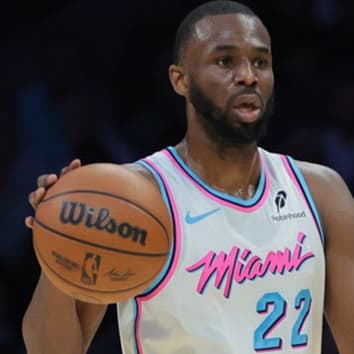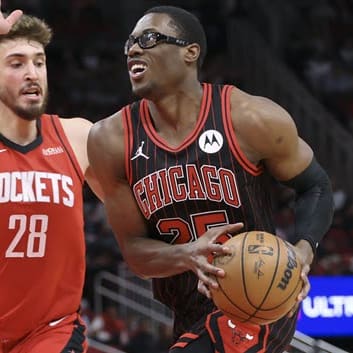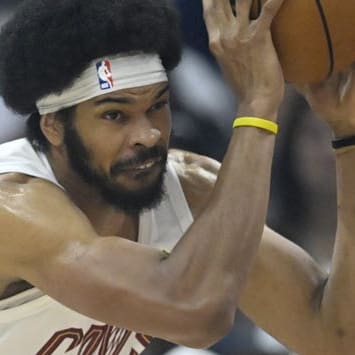Playing to Win, With Multiple Daily NBA Lineups
My 11-year-old son is a die hard little leaguer. He's loved baseball forever. While he plays some travel ball, our town requires all kids to also sign up for the house league. It's a less competitive, learn the fundamentals, everyone gets to play and have fun kind of league, which is great. With one exception: kids that won't swing the bat. They get up to the plate and have zero intention of ever taking a swing. They pray for a walk.
At that age, pitching is just on the edge of decent. Walking is a high percentage play. My son, on the other hand, strikes out a fair amount. He also gets a fair amount of hits and walks, but if he ever faced a decent pitcher and didn't swing the bat, he knows what he'd hear from me. Getting hits is more likely to win games than taking walks is. You have to take some risks and swing away.
A question that comes up a lot in daily fantasy sports is whether you should play just one lineup or roll with multiple lineups on any given night. The two most important factors in the decision are the type of game you're entering and the number of teams on the slate...and then third is maybe how much time you can spend on your daily NBA addiction.
For guaranteed prize pool (GPP) tournament style games, you need to have a really high upside lineup if you want to win. However, if you play day in and day out and hope to make a profit, you want to play mostly cash games, head to head (h2h) and 50/50's. In those, you tend to want to use a more solid and safe lineup.
So, if you play in all these kinds of games every night (I've been playing a ratio of GPP:50/50:h2h of around 10:10:80), you'll probably need at least two lineups. Your GPP lineup should look more like Studs & Scrubs, while your h2h lineup should look more along the lines of All Average. The logic is that the high upside lineups also have significant downside. Most nights, my safer cash game lineup scores higher than my tournament lineup, but only rarely is it high enough to have taken down a tournament.
When there are a lot of games on the slate, it's tempting to create even more lineups. I always make one "dummy" lineup to enter into games early in the day and then edit it later after I've done my research (and decide to enter more games or not). With so many teams hitting the floor, you want exposure to a variety of high upside players, whether they are value plays or bonafide studs. I end up with a bunch of different lineups targeting different combinations of studs, core guys, and values and compare them side by side. Usually, a couple stand out as superior. In a big tourney or qualifier game, it makes sense to enter multiple lineups to diversify your investments.
On a short night of games, I only use one lineup. There are fewer players to choose from and fewer people playing daily NBA on low volume Sunday or Thursday schedules. There are also just days that I can't tinker enough to have multiple strong lineups owing to time constraints in other areas of life. Shockingly, my kids need to eat and my college students need to learn stuff, so a fair amount of the time, this month in particular, I've been pouring all my energy into a single solid squad (and playing about 95% h2h games).
Neuroeconomics research shows that we make decisions not as much to achieve rewards, but rather to avoid regrets. This new field studies how the brain makes value decisions and has implications in all areas of life. (I've written about how it affects fantasy football here.) When it comes down to it, we just don't want to lose more than we want to win. I can see evidence for this attitude in myself when I use multiple lineups and one is clearly better than the others. I say, and presumably we've all said, "If only I had just used that one in every game, I'd be $XXX richer right now." We regret deploying risk/reward lineups that didn't perform as well.
Often, it's my safety cash game lineup that has the exceptional night. Regret over the losing lineups could push us to play this one type of safe/average strategy in every game every night. We need to keep in mind that always playing not to lose won't help us win more often, and what we all want to do is win more often. This is why it's so important to diversify at the game level, so that you cash in the majority of your games, even if the payouts are only double (minus rake) not exponential. You want to have some baserunners when you hit the doubles or homeruns.
My son hates when he strikes out, even more if he swung at a bad pitch, but I'm trying to teach him that his regret over making the out is part of the game. To win the big DFS games, you need to employ smart, but risky, high ceiling plays. Everyone strikes out, and often in stunning fashion, like when Roy Hibbert put up eight fantasy points last week, but you need to win tournament games less often because the profit margin is so much larger. If you keep at it, with solid research and good fundamental strategy, you'll get the hits.





































